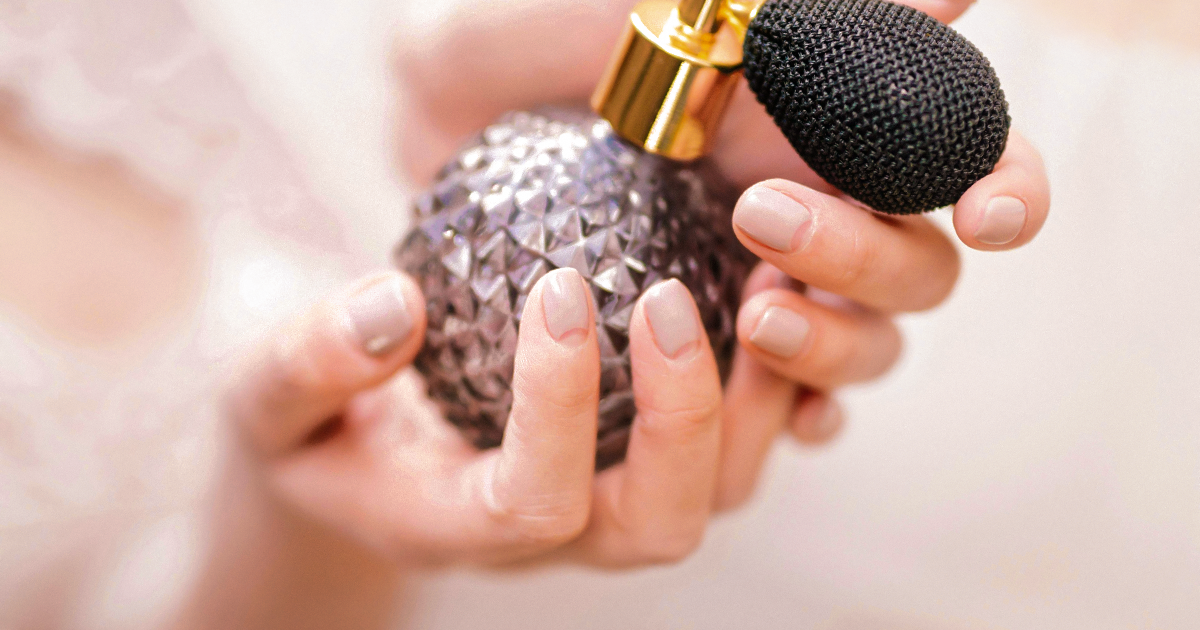
Photo: Leeloo The First
Finding Your Fragrance Vibe: What Scent Should You Choose…
The first step in your fragrance journey is understanding your vibe. Think about the environments you feel most comfortable in or the experiences that shape your life. Are you drawn to the outdoors, or do you prefer cozy, intimate settings? This reflection will help you narrow down the types of fragrances that you might like.

What Are the Top Four Most Common Fragrance Families?
Before diving into the world of scents, it’s helpful to grasp the basics. Fragrance families are classifications based on the dominant notes or accords in a perfume. Think of them as genres of music or colors in a palette. They categorize scents into distinct groups, making it easier to find fragrances you’ll love. Here are the four most common families and their unique characteristics:
Fresh Fragrances:
Light, uplifting, and often citrusy, evoking a sense of cleanliness and energy.
- Key notes: Citrus (lemon, orange, grapefruit), green (cucumber, grass), light florals (rose, jasmine).
- Mood: Uplifting, invigorating, energizing, refreshing.
- Occasions: Daytime, casual settings, spring/summer.
- Famous Examples: Acqua di Gio by Giorgio Armani, Light Blue by Dolce & Gabbana, Green Tea by Elizabeth Arden.
Floral Fragrances:
Delicate and romantic, featuring notes of various flowers, creating a soft and feminine aroma.
- Key notes: Rose, jasmine, lily, gardenia, violet.
- Mood: Romantic, soft, delicate, feminine, nostalgic, warm.
- Occasions: Versatile, suitable for various occasions, romantic evenings, and daytime events.
- Famous Examples: Chanel No. 5, Miss Dior, Flowerbomb by Viktor & Rolf.
Ambery Fragrances:
Warm and sensual, with rich and complex notes of amber, vanilla, and spices, offering a comforting and inviting scent.
- Key notes: Amber, vanilla, patchouli, tonka bean, cinnamon.
- Mood: Warm, sensual, comforting, inviting, alluring.
- Occasions: Evening wear, special occasions, winter/fall.
- Famous Examples: Opium by Yves Saint Laurent, Hypnotic Poison by Christian Dior, Amber Musk by Sultan Bath & Body Works.
Woody Fragrances:
Deep, rich, and often featuring woodsy notes like sandalwood or cedar, conveying warmth and sophistication.
- Key notes: Sandalwood, cedar, patchouli, vetiver, pine.
- Mood: Warm, sophisticated, earthy, masculine, grounding.
- Occasions: Evening wear, formal events, winter/fall.
- Famous Examples: Creed Aventus, Le Mâle by Jean Paul Gaultier, Terre d’Hermès.

Decoding the Scent Notes
Once you know your fragrance vibe, it’s time to decode the scent notes that compose your fragrance. Understanding these notes will help you to understand and appreciate the complexity of each smell a little bit better, making a more informed choice.
Fragrances typically coat your skin with three layers: top, middle (or heart), and base notes.
- Top Notes: These are the initial scents you perceive, typically light and fresh. Depending on the fragrance, top notes last for about 15-30 minutes, setting the overall impression.
- Middle Notes: Emerging after the top notes fade, these scents form the heart of the fragrance. They offer depth and character, lasting several hours.
- Base Notes: Providing the fragrance’s foundation, these rich and deep notes can linger for hours or even days. They leave a lasting impression.
So, if you could create your signature scent, what notes would it include? How would you choose the right perfume that will suit both your vibe and body chemistry?
- Your Skin and Your Scent:
One important factor in choosing a fragrance is how it interacts with your skin. Many ignore this little step, but it may be vital for your vibe, as the body chemistry drastically affects the way your fragrance develops and stays on the skin. This makes it essential to test fragrances on your skin rather than just smelling them from the bottle.
When testing a fragrance, apply a small amount to your wrist and allow it to dry. Observe how it evolves over time. You may find that a scent you initially liked changes dramatically while another develops beautifully.
While fragrance is a personal choice that knows no bounds, considering age-appropriate scents can enhance your fragrance journey.
To Sum It All Up…
So, there you have it! Choosing the perfect fragrance is a personal journey that reflects your unique style and current vibe. Don’t be afraid to experiment and discover scents that resonate with you. Remember, a fragrance is more than just an aroma; it’s an expression of your personality. So, go ahead, indulge in the world of scents and find your signature fragrance that leaves a lasting impression.
